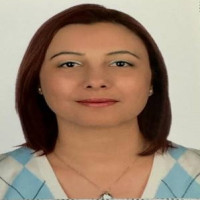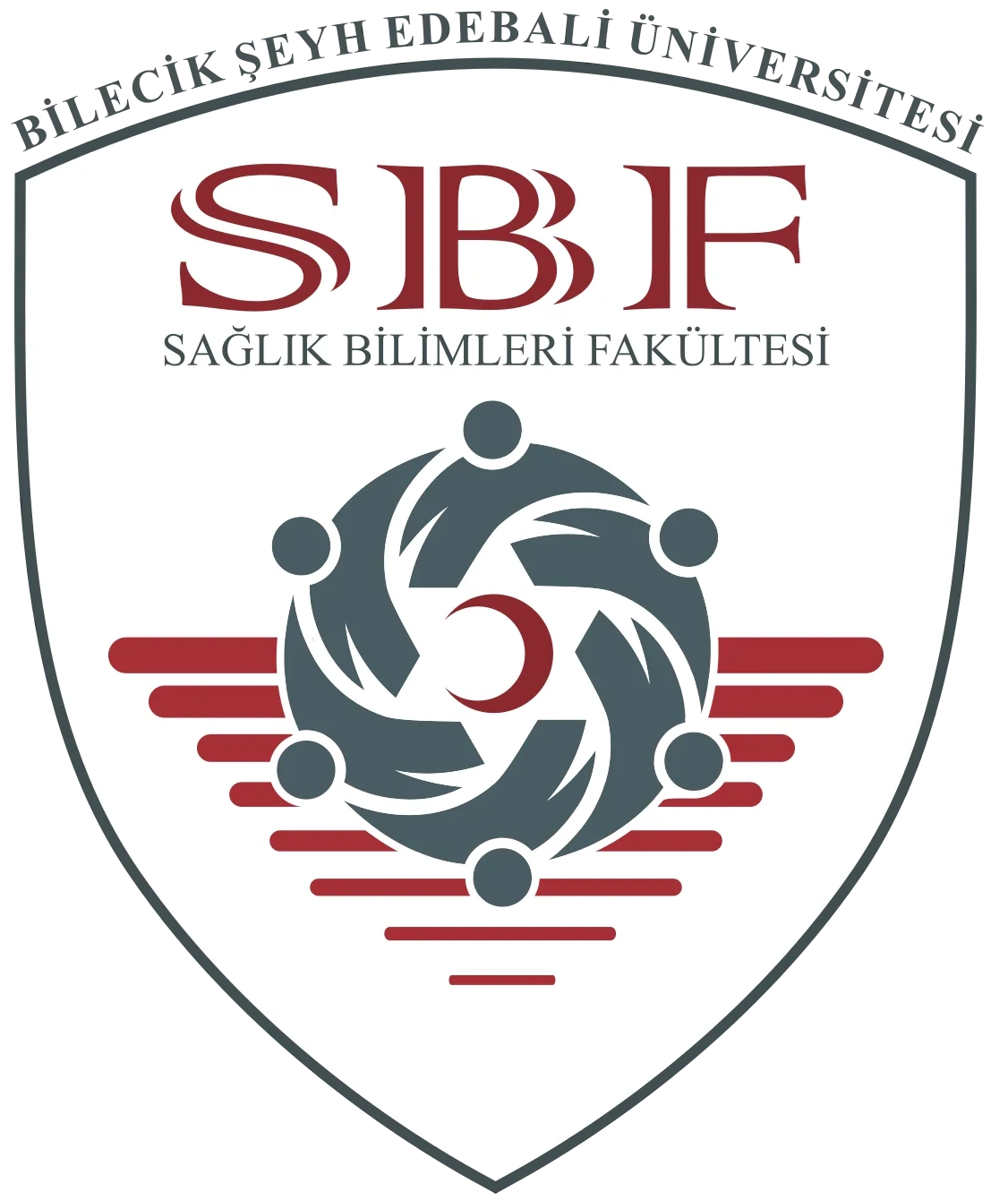Research Articles
Reviews
Issue Reviewers
 0000-0002-5736-8186
0000-0002-5736-8186

 0000-0002-6556-5753
0000-0002-6556-5753
 0000-0003-1322-046X
0000-0003-1322-046X


 0000-0002-9842-1588
0000-0002-9842-1588
Aim & Scope
Founded in 2023, Bilecik Şeyh Edebali University Faculty of Health Sciences Journal (BSEU-FHSJ) is an international peer-reviewed journal that aims to bring together Turkish and/or English studies in the field of health sciences.
It aims to publish current clinical and experimental original articles, reviews, case reports, letters to the editor and multidisciplinary studies in the field of health sciences, especially in the fields of health management, nursing, social work, midwifery, child development, occupational therapy, orthotics and prosthesis, speech and language therapy, audiology, physiotherapy and rehabilitation, nutrition and dietetics.
Author Guidelines
• Make sure that the work you upload to the DergiPark system complies with the writing rules and article template.
Click on the article template.
Citation of author(s) in text
Single author:
According to Baysal (1982)
(Baysal, 1982: 26)
Two authors:
According to Wegener and Petty (1994) (...)
(Wegener & Petty, 1994: 26)
In texts with three or more authors, only the first author's name is used, followed by the phrase "et al.":
As stated by Harris et al. (2001) (...)
According to Harris et al. (2001) (...)
(Harris et al., 2001: 112)
In cases where the author's name is not known or specified, the first or two words in the text should be used in parenthesis and quotation marks:
Politicians and bureaucrats have stated that the results are unacceptable and scandalous ("Die Pisa-Analyse", 2001).
If the author is an organization or government institution, it is cited as the first citation; if it is a well-known institution, the abbreviation is preferred for subsequent use:
According to the American Psychological Association (2000).
First citation: (Mothers Against Drunk Driving [MADD], 2000: 65).
Second citation: (MADD, 2000: 65).
When citing more than one study in the same parenthesis, they must be sorted alphabetically and separated by two semicolons:
(Akar, H. 2010: 65; Çalışkan, 2008: 65; Dinçer & Kolaşin, 2009: 65; Engin-Demir, 2009: 65; Tunç, 2007: 65)
In authors with the same surname, the first letter of the name is also used to avoid confusion:
(E. Johnson, 2001: 65; L. Johnson, 1998: 65)
If two or more works of the same author published in the same year are cited; the letters (a, b, c) are used after the year:
According to the study of Berndt (1981a) (...)
Interviews, letters, e-mails obtained through personal communication, the name of the person contacted and the date of the interview should be specified. However, data obtained through personal communication should not be added to the bibliography:
(N. AlSayyad, personal communication, 25 March 2012)
N. AlSayyad on globalization and neoliberalism (...) (Personal communication, 25 March 2012)
Footnotes and endnotes
In the APA writing style, footnotes and endnotes are not preferred. Therefore, as few footnotes should be used as possible.
Important note:
If the study submitted to the IJMA journal for evaluation is prepared in English, the symbol "&" and "et al." should be used in the citations and references section.
Writing references
Single author:
Berndt, T. J. (2002). Friendship quality and social development. Current Directions in Psychological Science, 11, 7-10.
Two authors:
Wegener, D. T., & Petty, R. E. (1994). Mood management across affective states: The hedonic contingency hypothesis. Journal of Personality and Social Psychology, 66, 1034-1048.
Between three and seven authors:
Kernis, M. H., Cornell, D. P., Sun, C. R., Berry, A., Harlow, T., & Bach, J. S. (1993). There's more to self-esteem than whether it is high or low: The importance of stability of self-esteem. Journal of Personality and Social Psychology, 65, 1190-1204.
If there are more than seven authors; after the names of the first six authors are listed, three dots are added and the name of the last author is added. No more than seven names should be included:
Miller, F. H., Choi, M. J., Angeli, L. L., Harland, A. A., Stamos, J. A., Thomas: T., . . . Rubin, L. H. (2009). Web site usability for the blind and low-vision user. Technical Communication, 57, 323-335.
In the event that the author is an organization:
American Psychological Association. (2003).
If the author is unknown:
Merriam-Webster's collegiate dictionary (10. bs.). (1993). Springfield, MA: Merriam-Webster.
If two or more studies of the same author were used; references must be sorted in date order:
Berndt, T. J. (1981).
Berndt, T. J. (1999).
If the author is the only author in one study and the co-author in another study, the single-authored study should be listed first:
Berndt, T. J. (1999). Friends' influence on students' adjustment to school. Educational Psychologist, 34, 15-28.
Berndt, T. J., & Keefe, K. (1995). Friends' influence on adolescents' adjustment to school. Child Development, 66, 1312-1329.
If an author has published studies with a different author, the order is alphabetically based on the second or next name:
Wegener, D. T., Kerr, N. L., Fleming, M. A., & Petty, R. E. (2000). Flexible corrections of juror judgments: Implications for jury instructions. Psychology, Public Policy, and Law, 6, 629-654.
If an author has two or more studies published in the same year, letters such as (a, b, c) are used:
Berndt, T. J. (1981a). Age changes and changes over time in prosocial intentions and behavior between friends. Developmental Psychology, 17, 408-416.
Berndt, T. J. (1981b). Effects of friendship on prosocial intentions and behavior. Child Development, 52, 636-643.
Introduction, preamble and afterword sections are cited as a book chapter:
Kumar, R., & Hill, D.(2009). Introduction,: Neoliberal Capitalism and Education. D. Hill & R. Kumar (Comp.). In Global Neoliberalism and Education and its Consequences (pp. 1-11). New York: Routledge.
Journals and periodicals:
Basic Format:
Author, A. A., Author, B.B., & Author, C.C. (Year) Article name. Journal name, volume(no), page(s). doi:http://dx.doi.org/xx.xxx/yyyyy
Articles in journals where there is only volume:
Harlow, H. F. (1983). Fundamentals for preparing psychology journal articles. Journal of Comparative and Physiological Psychology, 55, 893-896.
In the journals where the issue and volume are specified:
Scruton, R. (1996). The eclipse of listening. The New Criterion, 15(3), 5-13.
Articles in the magazines:
Henry, W. A. (1990, April 9). Making the grade in today's schools. Time, 135, 28-31.
Newspaper articles (printed):
Schultz: (2005, December 28). Calls made to strengthen state energy policies. The Country Today, pp. 1A, 2A.
Letter to the editor:
Moller, G. (August, 2002). Ripples versus rumbles [Letter to editor]. Scientific American, 287(2), 12.
Book review:
Baumeister, R. F. (1993). Exposing the self-knowledge myth [Book review The self-knower: A hero under control, by R. A. Wicklund & M. Eckert]. Contemporary Psychology, 38, 466-467.
Writing the books in the references:
Basic format:
Author, A. A. (Year of publication). Study name. Location: Publisher
Cuban, L. (2001). Oversold and underused: computers in the classrooms. Cambridge: Harvard University Prepp.
Compilation book:
Duncan, G. J., & Brooks-Gunn, J. (Comp.). (1997). Consequences of growing up poor. New York, NY: Russell Sage Foundation.
Compilation book; if the author(s) are specified (or if a person's writings have been compiled):
Plath: (2000). The unabridged journals. K. V. Kukil (Comp.). New York, NY: Anchor.
Translation:
Laplace, P. S. (1951). A philosophical essay on probabilities. (F. W. Truscott and F. L. Emory, Trans.). New York, NY: Dover. (Publication date of the original study: 1814).
Important note:
In the text, when citing the republished study, both dates should be provided: Laplace (1814/1951).
If other editions that differ from the first edition are used:
Helfer, M. E., Kempe, R. S., & Krugman, R. D. (1997). The battered child (5. ed.). Chicago, IL: University of Chicago Prepp.
A chapter or article in a compiled book:
Author, A. A., & Author, B.B. (Year of publication). Section/article name. A. Editor & B. Editor (Comp.), in book name (page numbers). Location: Publisher.
O'Neil, J. M., & Egan, J. (1992). Men's and women's gender role journeys: A metaphor for healing, transition, and transformation. B. R. Wainrib (Comp.), In Gender issues across the life cycle (pp. 107-123). New York, NY: Springer.
Multi-volume work:
Wiener, P. (Comp.). (1973). Dictionary of the history of ideas (Vol. 1-4). New York, NY: Scribner's.
Encyclopedia article:
Bergmann, P. G. (1993). Relativity. In The New Encyclopedia Britannica. (Vol. 26, pp. 501-508). Chicago, IL: Encyclopedia Britannica.
Published thesis:
Surname, F. N. (Year). Thesis name. (Doctoral thesis). The name of the database accessed. (Access or Series Number)
Unpublished thesis:
Surname, F. N. (Year). The title of his doctoral thesis. (Unpublished doctoral thesis.) Institution name, Location.
Köprülü, D. (1994). Üniversite kütüphanelerinde kitap koleksiyonunun kullanımı üzerine bir araştırma. Unpublished doctoral thesis, Hacettepe University, Ankara.
Government documents:
National Institute of Mental Health. (1990). Clinical training in serious mental illness (DHHS Publication No. ADM 90-1679). Washington, DC: U.S. Government Printing Office.
Articles in online periodicals:
Author, A. A., & Author, B.B. (year of publication). Article name. Name of Online Journal, volume(no) accessed on (...) via http://www.someaddress.com/full/url/ .
Bernstein, M. (2002). 10 tips on writing the living Web. A List Apart: For People Who Make Websites, £149. Accessed on January 15, 2012 via http://www.alistapart.com/articles/writeliving
Articles in online scientific periodicals and DOI citations:
Online journal articles with defined DOI:
Author, A. A., & Author, B.B. (year of publication). Article name. Journal Name, volume(no), page(s). doi:0000000/0000000000000000 or http://dx.doi.org/10.0000/0000
Brownlie, D. (2007). Toward effective poster presentations: An annotated bibliography. European Journal of Marketing, 41, 1245-1283. doi:10.1108/03090560710821161
Wooldridge, M.B., & Shapka, J. (2012). Playing with technology: Mother-toddler interaction scores lower during play with electronic toys.Journal of Applied Developmental Psychology, 33(5), 211-218. http://dx.doi.org/10.1016/j.appdev.2012.05.005
Citations of articles in online periodicals with no defined DOI:
Author, A. A., & Author, B.B. (date of publication). Article name. Journal name, volume no. Accessed via http://www.journalhomepage.com/full/url/.
Kenneth, I.A. (2000). A Buddhist response to the nature of human rights. Journal of Buddhist Ethics, 8. Accessed on January 15, 2012 via http://www.cac.psu.edu/jbe/twocont.html.
Online newspaper article:
Author, A. A. (Year, Day, Month). Article name. Newspaper Name.
Accessed via http://www.someaddress.com/full/url/.
Parker-Pope, T. (2008, May 6). Psychiatry handbook linked to drug industry. The New York Times. Accessed January 15, 2012, via http://well.blogs.nytimes.com.
Electronic books:
De Huff, E. W. (t.y.). Taytay’s tales: Traditional Pueblo Indian tales. Accessed January 15, 2012, via http://digital.library.upenn.edu/women/dehuff/taytay/taytay.html.
Davis, J. (t.y.). Familiar birdsongs of the Northwest. Accessed January 15, 2012 via http://www.powells.com/cgi-bin/biblio?inkey=1-9780931686108-0.
Qualitative data and online interview:
If an audio or written form of the interview is not accessible, only the text refers to it and the month, day, year information is specified and it is not added to the references section. If it is available in audio or written form online, it is indicated in parentheses ([Interview transcription] or [interview audio file]); and included in the references section as follows:
Butler, C. (Interviewer) & Stevenson, R. (Interviewee). (1999). Oral History 2 [Interview transcription]. Retrieved from Johnson Space Center Oral Histories Project Web site: Accessed January 15, 2012 via http:/ …… / ……… www11.jsc.nasa.gov/history/oral_histories/oral_histories.htm.
Interview published in a printed environment:
Çelik, Z. (Interviewer) & AlSayyad, N. (Interviewee). (2012). On neoliberalism and urban inequalities [Interview transcription]. İdealKent. (7), 10-20.
Online lecture notes and presentation slides:
Roberts, K. F. (1998). Federal regulations of chemicals in the environment [PowerPoint slide]. Accessed January 15, 2012 via http://siri.uvm.edu/ppt/40hrenv/index.html.
Non-periodic web document, page, or report:
Author, A. A. (publication date). File name. Accessed January 15, 2012 via http://webaddress.
Angeli, E., Wagner, J., Lawrick, E., Moore, K., Anderson, M., Soderland, L., & Brizee, A. (2010, May 5). General format. Accessed January 15, 2012 via http://owl.english.purdue.edu/owl/resource/560/01/.
Ethical Principles and Publication Policy
Price Policy
There are not any submission fees, editorial processing fees or publication fees for the articles submitted to the journal or accepted for publication.
Qualified studies in the following fields can be published in the BSEU-FHSJ;
Health management, nursing, social work, midwifery, child development, occupational therapy, orthotics and prosthesis,
speech and language therapy, audiology, physiotherapy and rehabilitation, nutrition and dietetics, other multidisciplinary studies.



